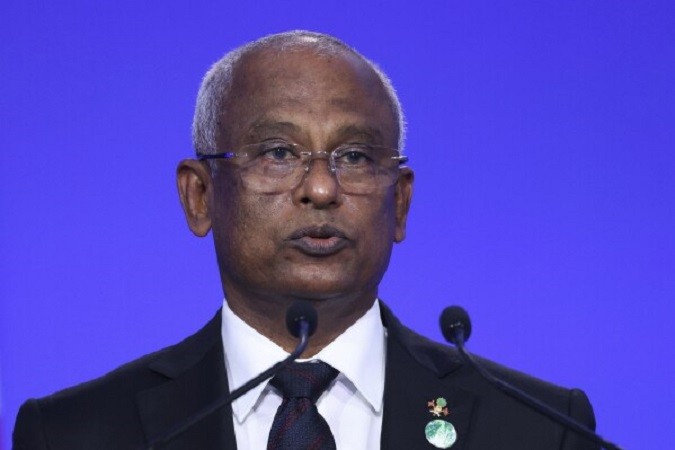
MALDIVES: Maldivians cast their votes in the presidential election, marking a pivotal moment in a virtual showdown between India and China for dominance in the Indian Ocean archipelago. President Ibrahim Mohamed Solih, seen as aligning with India, sought re-election against his main rival, Mohamed Muiz, who accused him of permitting an unchecked Indian presence in the Maldives.
Muiz pledged that, if elected, he would withdraw Indian troops stationed in the Maldives and address the trade imbalance, which he argued heavily favored India. Muiz's political party, the People's National Congress, is known for its pro-China stance. During Abdullah Yameen's presidency from 2013 to 2018, he integrated the Maldives into China's ambitious 'One Belt One Road' initiative, aimed at expanding trade and China's influence across Asia, Africa, and Europe through the construction of ports, railways, and roads.
Mohamed Shareef, a senior official from Muiz's party, asserted that the removal of Indian military personnel was a non-negotiable demand. He claimed that the exact number of Indian troops and their activities remained undisclosed to Maldivians, and they enjoyed exclusive access to specific areas and airports in the country.
India and China both vie for supremacy in this tiny archipelago consisting of around 1,200 coral islands strategically positioned along the main shipping route connecting East and West.
Solih was considered the frontrunner among the eight candidates, especially since his primary rival, Yameen, was disqualified from running by the Supreme Court due to his imprisonment on corruption and money laundering charges. Muiz hoped to capitalize on a division within Solih's Maldivian Democratic Party, which prompted Mohamed Nasheed, a charismatic former president, to break away and field his own candidate.
Over 282,000 eligible voters participated in Saturday's election, with a candidate needing to secure more than 50 percent of the vote to win outright. Otherwise, the top two candidates would face off in a runoff election later this month.
China and India Agree to De-escalate Tensions in the Himalayas: A Path to Peace